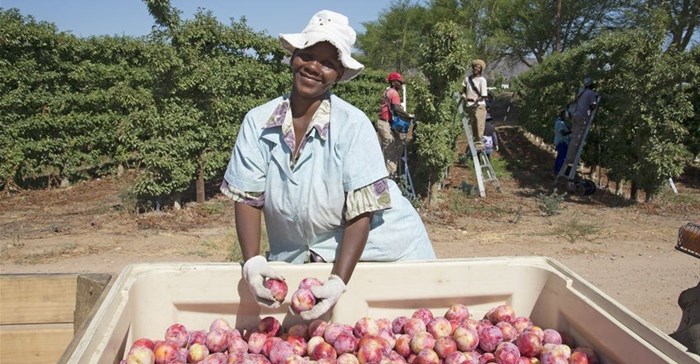
Top stories





EntrepreneurshipHow SMEs can build AI-ready businesses starting with the right technology foundation
Sudesh Pillay, WhyMAcForSME 5 minutes

More news























Logistics & Transport
Uganda plans new rail link to Tanzania for mineral export boost


Tripling South Africa's exports by 2030
Today, South Africa is the tenth largest source of agricultural imports in Europe and the largest exporter of agricultural produce and processed foods to the 14 other members of the Southern African Development Community. But according to new research from the McKinsey Global Institute (MGI), there is room to grow: firstly, Asian demand-growth forecasts for South African exports (3.8 percent each year to 2030) mean it will soon match the scale of the European opportunity; secondly, our analysis shows that the African opportunity will overtake both Europe and Asia, especially given the export potential in the newly emerging 26-country African Tripartite Free Trade Area (TFTA).
The biggest product export categories here will be fruit, vegetables, nuts, beverages and spirits, and animal products, particularly for processed food products. In fact, of the 490,000 new jobs that could be created from this export opportunity by 2030, 314,000 come from agro-processing alone. This will require growth along the entire value chain: increased production, increased processing and expanded access to new and existing markets in these regions.
South Africa's agricultural exports are competitive relative to other countries, particularly in fruits and beverages. There is a notable exception in poultry and, in some markets, maize and fish. This is congruent with our analysis that shows that South African farmers are highly productive in apples, grapes, oranges and wheat, but are less so in maize, strawberries, and sugar cane (when compared to countries with comparable climates). The basis for growing the sector to meet this opportunity is in place, but will require a ramp up in scale of three times current exports while simultaneously continuing to strengthen competitiveness.
This needs to start with:
• Improving productivity and cost base - Cost competitiveness will be important for exports to African markets, in order to compete with local production with lower logistics costs. To this end, farm productivity can further improve to increase tonnes produced while reducing cost per tonne. Levers include further farm consolidation; the use of advanced automation technology, like remote-controlled tractors; the application of advanced sensing and analytics, like yield monitors and other control systems; micro-segmentation of land; and, given South Africa's challenge with droughts, investment in more advanced irrigation and water-saving techniques.
South Africa also needs to invest more in R&D and introduce digital platforms to facilitate knowledge-sharing amongst farmers. Structural supply chain changes may also be necessary to reduce existing cost bases, such as addressing the source of chicken feedstock, the biggest cost component in poultry production.
• Making unused land available - An estimated 1.6 million to 1.8 million hectares of unused land is available and suitable for farming. This could increase agricultural output by some 14 percent. Investment will be needed to bring this land to its full arable potential, particularly in soil preparation and in providing access to water via irrigation infrastructure. Demand for land, however, will compete with other sectors and with human settlements. Therefore a land use and classification plan will be necessary to manage these competing demands.
• Investing in processing and infrastructure - Most of the export growth opportunity lies in processed foods. New processing businesses need to meet already high quality standards, while the industry as a whole will need to meet increasingly stringent international quality and traceability standards. Access to power, water and logistics infrastructure will be needed. These infrastructure plans need to be cognisant of where new processing facilities will be located. Special Economic Zones and agri-parks could play the role of hubs to support this growth, providing utilities and access to air, rail, and port and cold-chain infrastructure.
South African agriculture has proven potential to grow its exports both within the continent and in Europe and Asia, provided it strengthens its cost competitiveness and shifts its focus to processed products. Enabling this growth requires a national plan that deals with current challenges through clear regional priorities, that pools resources across departments and provinces, and tracks progress on funded initiatives. The strategic plan should look to clarify land rights, consolidate farm output, deliver infrastructure, effectively manage irrigation and water use, and seek to create an environment that draws in the investments needed to make this growth happen.